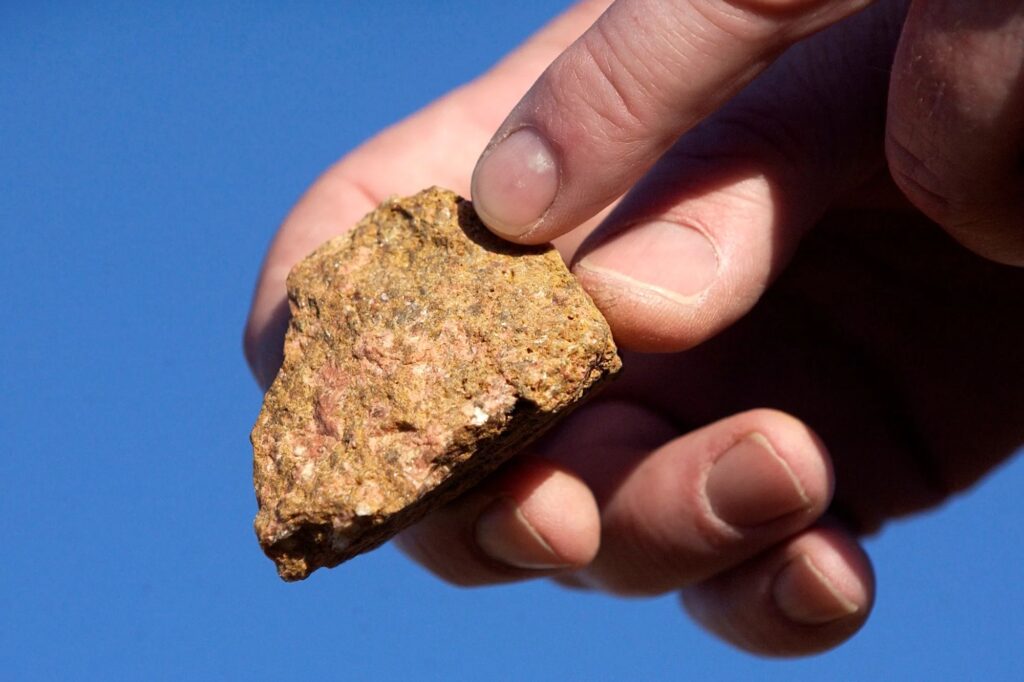🔴 Website 👉 https://u-s-news.com/
Telegram 👉 https://t.me/usnewscom_channel
In a small dusty African town of Ngualla, Tanzania, two mining landowners this year sat waiting for their guest, bantering in friendly conversation, when the door opened suddenly and in stepped a Chinese general.
A decade of similar meetings had accustomed them to dealing with suited and bespeckled Chinese mining executives; this was a dramatic new development.
We should heed the Roman adage, “Si vis pacem, para bellum”: If you want peace, prepare for war.
Alas, our war with the Chinese is not looming; it is here — even if it isn’t an actual all-out shooting war.
But make no mistake: America is losing.
This war spans multiple fronts — land, sea, cyberspace and even the labs where the technologies of tomorrow are being developed.
It centers heavily on our dependence on a low-cost foreign-inputs supply chain.
Most notably, China is systematically dismantling our strategic advantage in rare-earth minerals, which are essential for everything from missile-guidance systems to electric vehicles.
They’re also the key ingredient of the critical semiconductor chips in ubiquitous everyday consumer products like Nest thermostats and Samsung smartphones.
And it has left America critically exposed: Indeed, we face a slow, methodical erosion of our strategic military and economic advantage.
These minerals are the backbone of modern technology and national defense, and China produces 60%, and processes 90%, of the global supply. Beijing is playing to win.
China is not just securing minerals; it’s weaponizing them. Military generals are leading negotiations for mineral rights worldwide, treating it as a national-security mandate.
Beijing sees what Washington America refuses to see: Control of rare earths is the kingmaker.
It is the time to reconstitute American control of key elements: The Chinese, for example, control 99% of dysprosium, which is used to mitigate extreme temperatures in magnets found in jet engines, precision-guided munitions and lasers.
That will cost $4 billion and, more importantly, require at least seven years of effort.
They also control 95% of gadolinium, used in nuclear reactors ($2 billion-plus, seven-plus years); neodymium (90%, $3 billion-plus, seven-years-plus); samarium (95%, $2 billion, five-plus years); terbium (95%, $4 billion, 10-plus years); yttrium (99%, $2 billion-plus, seven-plus years); gallium (98%, $1 billion-plus, five-plus years); antimony (97%, $1 billion-plus; five-plus years); and super abrasives (95%, $1 billion, three-plus years).
Unlike during WWI and WWII, where power was exercised largely mechanically, this battlefield is digital.
It takes decades to develop mining, processing and refining capacity. And, at the moment, China utterly dominates.
America’s dependence on China for rare earths is the result of shortsighted decisions directly related to a defense-industry base that has downplayed the importance of ingenuity and performance.
We’ve also been asleep to the consequences as China exerted control over key areas throughout the world, notably through its Belt and Road initiative.
The results are devastating. We are not on borrowed time; we are out of time.
Our response now cannot be incremental. Action must be aggressive and immediate.
First, we need a Manhattan Project for rare earths — a national effort to build mining and processing capacity with the urgency of wartime mobilization.
America’s deposits alone are insufficient. We’ll need massive government and private-sector investment backed by ironclad incentives to harvest these essential raw ingredients wherever they may be.
Rare-earth mining, both here and abroad, needs to be a national priority, not an afterthought. Permitting reform is absolutely non-negotiable.
Second, we must forge strategic alliances with allies like Australia and Canada to contravene China’s dominance.
Rare earths must become a cornerstone of US foreign policy, just as much as our supply chains. This is no longer about trade; it’s about survival.
Finally, as the appearance of the “negotiating” Chinese general illustrates, this is not a market issue; it is a military imperative.
Delay invites defeat. Weakness invites aggression. A piecemeal, cautious approach will fail.
China is not waiting. It’s studied the lessons of history and outmaneuvered the world.
The war is here. We must flip our perspective from a belief we will win to the desperation that we may not.
Andrew King is a general partner at Bastille Ventures, which invests in critical technology furthering national security, and founder of Future Union, which encourages the private sector to stand against China and other adversarial regimes.
